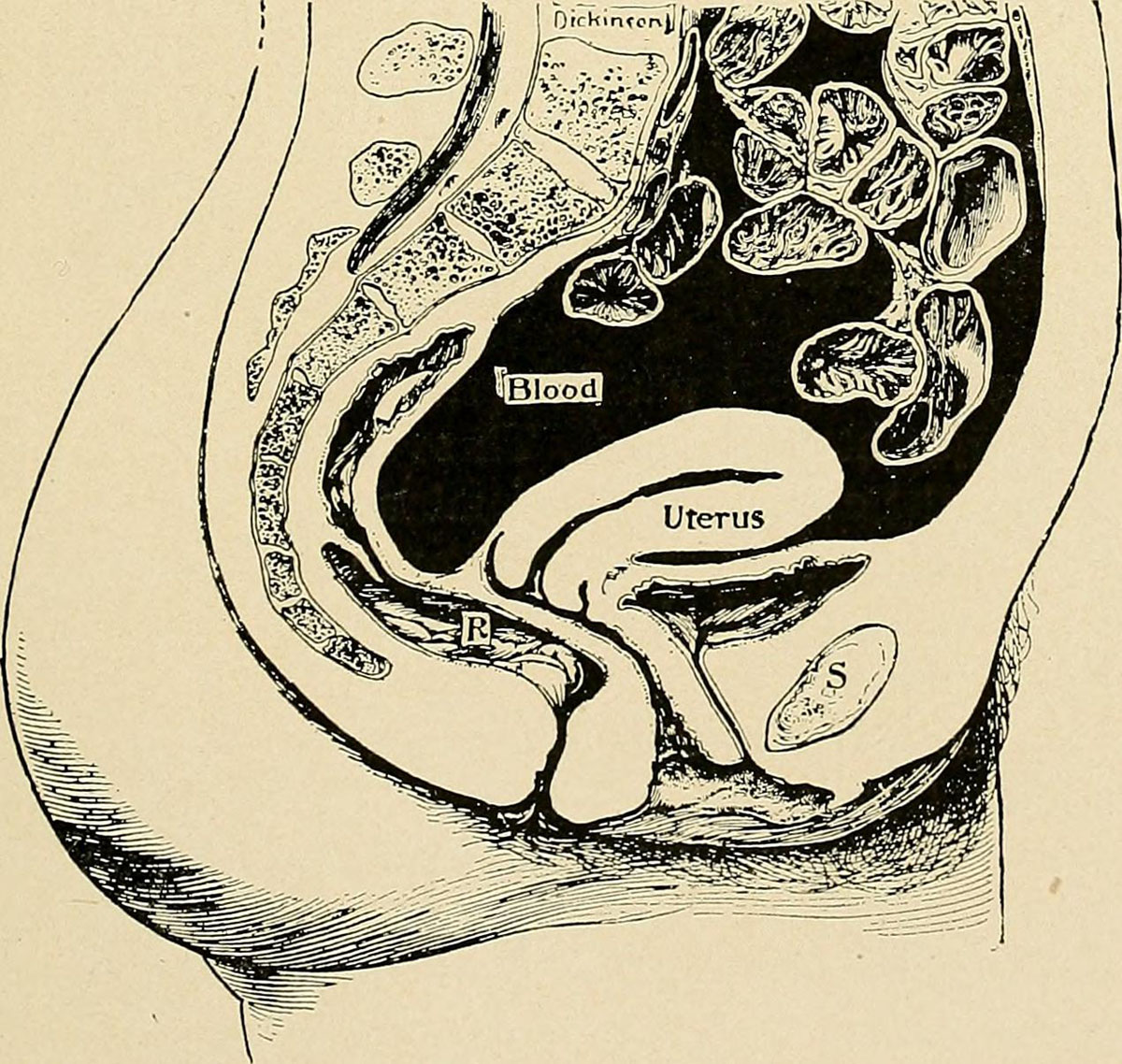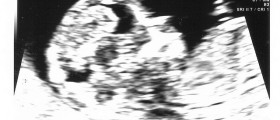
After fertilization, an egg travels down from the fallopian tubes into the uterus. The egg will then attempt to embed itself into the lining. This process is called implantation. Implantation will typically happen around nine days post ovulation, though it can happen anywhere between six and twelve days after ovulation has taken place. It is an essential stage in the formation of pregnancy. In cases where the eggs fails to implant itself, menstruation will follow and the egg will be flushed out.
When implantation has been a success, and the egg has embedded itself in what is called the endometrial lining, some blood is sometimes released. The uterus and endometrial (the tissue where the egg implants) lining are an environment with plenty of blood, so implantation bleeding is a common symptom of pregnancy, before menstruation. It does not happen to every women though. Only around a third of pregnant women will have implantation bleeding or spotting.
Implantation bleeding is not bright red, but darker in color and can be brown, dark red, pink, or even black blue. That is because the blood is no longer fresh by the time the blood is expelled from the uterus. Implantation bleeding differs from menstrual bleeding by the sheer volume of blood - spotting after implantation does not typically consist of more than a few drops of blood in vaginal discharge. Besides that, implantation bleeding happens earlier in a woman\'s cycle than a normal menstrual period would, and does not normally come with any of the symptoms that are common during periods, like cramping and mood swings. Spotting that happens only a few days before a period is due could be implantation bleeding, but might be the early onset of a menstruation too. If the bleeding continues and gets heavier, it is probably a regular period.
Early pregnancy symptoms are not unlike the symptoms of a period. Many women find themselves wondering if they are pregnant or not, and obsess about every little twitch. Early pregnancy tests can sometimes provide the answer, even though they are not as accurate as later pregnancy tests. An accurate pregnancy test can only be obtained from the day menstruation would normally have started.
Women who have already had a positive pregnancy test and then notice spotting should seek immediate medical attention. Light spotting does sometimes happen in early pregnancy, but heavier bleeding can point to the start of a miscarriage.
















Your thoughts on this
Loading...